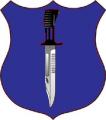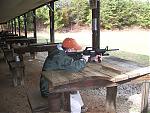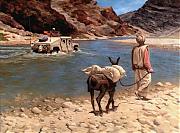PETRAEUS, AFGHANISTAN AND THE LESSONS OF IRAQ
By George Friedman
Gen. David Petraeus, who commanded the surge in Iraq, was recommended April 23 by U.S. Secretary of Defense Robert Gates to be (CENTCOM). If confirmed by the U.S. Senate, this means Petraeus would remain in ultimate command of the war in Iraq while also taking command in Afghanistan. Days after the recommendation, there was yet another unsuccessful attempt on the life of Afghan President Hamid Karzai on April 27. Then, media reports May 3 maintained the United States might strengthen its forces in Afghanistan to make up for shortfalls in NATO commitments. Across the border in Pakistan, April 25, the first fruits of the Pakistani government's efforts to increase its -- though these talks appeared to collapse April 28. Clearly, there appears to be movement with regard to Afghanistan. The question is whether this movement is an illusion -- and if it is not an illusion, where is the movement going?
Petraeus' probable command in Afghanistan appears to be the most important of these developments. In Iraq, Petraeus changed the nature of the war. The change he brought to bear there was not so much military as political. Certainly, he deployed his forces differently than his predecessors, dispersing some of them in small units based in villages and neighborhoods contested by insurgents. That was not a trivial change, but it was not as important as the process of political discussions he began with local leaders.
The first phase of the U.S. counterinsurgency, which lasted from the beginning of the Iraqi insurgency in mid-2003 until the U.S. surge in early 2007, essentially consisted of a three-way civil war, in which the United States, the Sunni insurgents and the Shiite militias fought each other. The American strategic goal appears to have been to defeat both the insurgents and the militias, while allowing them to attrit each other and civilian communities.
Reshaping the Struggle in Iraq
Petraeus reshaped the battle by observing that the civil war was much more than a three-way struggle. Tensions also existed within both the Iraqi Sunni and the Shiite communities. Petraeus' strategy was to exploit those tensions, splitting both his opponents and forming alliances with some of them. Petraeus recognized that political power in the Sunni community rested with the traditional tribal leaders -- the sheikhs -- and that these sheikhs were both divided among themselves, and most important, extremely worried about the foreign jihadist fighters from al Qaeda.
Al Qaeda ultimately wanted to replace the sheikhs as leaders of their respective communities. It used its influence with younger, more radical Sunnis to create a new cadre of leaders. The more U.S. pressure on the Sunni community as a whole, the less room for maneuver the sheikhs had. U.S. policy was inadvertently strengthening al Qaeda by making the sheikhs dependent on its force against the United States. Similarly, the Shiite community was split along multiple lines, with Iran deeply involved with multiple factions.
Petraeus changed U.S. policy from what was essentially warfare against the Sunnis in particular, but also the Shia, as undifferentiated entities. He sought to recruit elements previously regarded as irredeemable, and with threats, bribes and other inducements, forced open splits among Sunnis and Shia. In doing so, Petraeus also opened lines to the Iranians, who used their fear of a civil war among the Shia -- and a disastrous loss of influence by Iran -- to suppress both intra-Shiite violence and Shiite violence against Sunnis.
The result of this complex political maneuvering coupled with the judicious use of military force was a decline in casualties not only among American forces, but also among Iraqis from intercommunal warfare. The situation has not by any means resolved itself, but Petraeusí strategy expanded splits in the Sunni and Shiite communities that he tried to exploit. The most important thing Petraeus did was to reduce the cohesion of U.S. enemies by recognizing they were not in fact a cohesive entity, and moving forward on that basis.
The verdict is far from in on the success of Petraeus' strategy in Iraq. The conflict has subsided, but certainly has not concluded. Indeed, we have seen increased attacks in Sunni regions recently, while conflict with radical Shiite leader Muqtada al-Sadrís forces in Baghdad is increasing. In many ways, the success of Petraeusí strategy depends on Iran continuing to perceive the United States as a long-term presence in Iraq, and continuing to regard suppressing conflict among Shia important so the Iraqi Shia can constitute a united bloc in the government of Iraq. But the strategy is not foolproof; should the jihadists and some of the Sunni sheikhs decide to stage a countersurge in the months ahead of the U.S. election, the fabric of political relations would unravel with startling speed, and the military situation would change dramatically. Petraeus certainly has improved the situation. He has not won the war.
The Afghan Challenge
Applying Petraeus' politico-military strategy to will be difficult. First, the ratio of forces to population there is even worse than in Iraq, making the application of decisive military force even more difficult. But even more important, unlike in Iraq -- where the U.S. effort began purely on a military track -- U.S. involvement in Afghanistan began on a political track much like Petraeus brought to bear in Iraq in 2007.
As we have pointed out many times, the United States did not actually invade Afghanistan in October 2001. That would have been impossible 30 days after 9/11. Instead, the United States made political arrangements with anti-Taliban factions and tribes to use their force in conjunction with U.S. airpower. The payoff for these factions and tribes was freedom from the Taliban and domination of the national government of Afghanistan, or at least their respective regions.
The first level of force the U.S. introduced into Afghanistan was a handful of CIA operatives followed by a small number of U.S. Army Special Forces teams and other special operations forces units. Their mission was to coordinate operations of new U.S. allies among the Northern Alliance -- which had been under Russian influence -- and among the Afghan Shia and Tajiks, who had been under Iranian influence. The solution ran through Moscow and Tehran on the strategic level, and then to these local forces on the tactical level.
Less than an invasion, it was a political operation backed up with airpower and a small number of U.S. ground forces. In other words, it looked very much like the strategy that Petraeus implemented in Iraq in 2007. This strategy was followed from the beginning in Afghanistan. Having forced the Taliban to retreat and disperse, the United States failed to prevent the Taliban from regrouping for two reasons. First, the political alliances it tried to create were too unstable and backed by too little U.S. force. Second, the Taliban enjoyed sanctuary in Pakistan, which Islamabad was unable or unwilling to deny them. As a result, the Taliban regrouped and re-emerged as a capable force, challenging insufficient U.S. and NATO forces on the ground












 "A Sherman can give you a very nice... edge."- Oddball,
"A Sherman can give you a very nice... edge."- Oddball, 



 You would think we were in an election year
You would think we were in an election year


Bookmarks